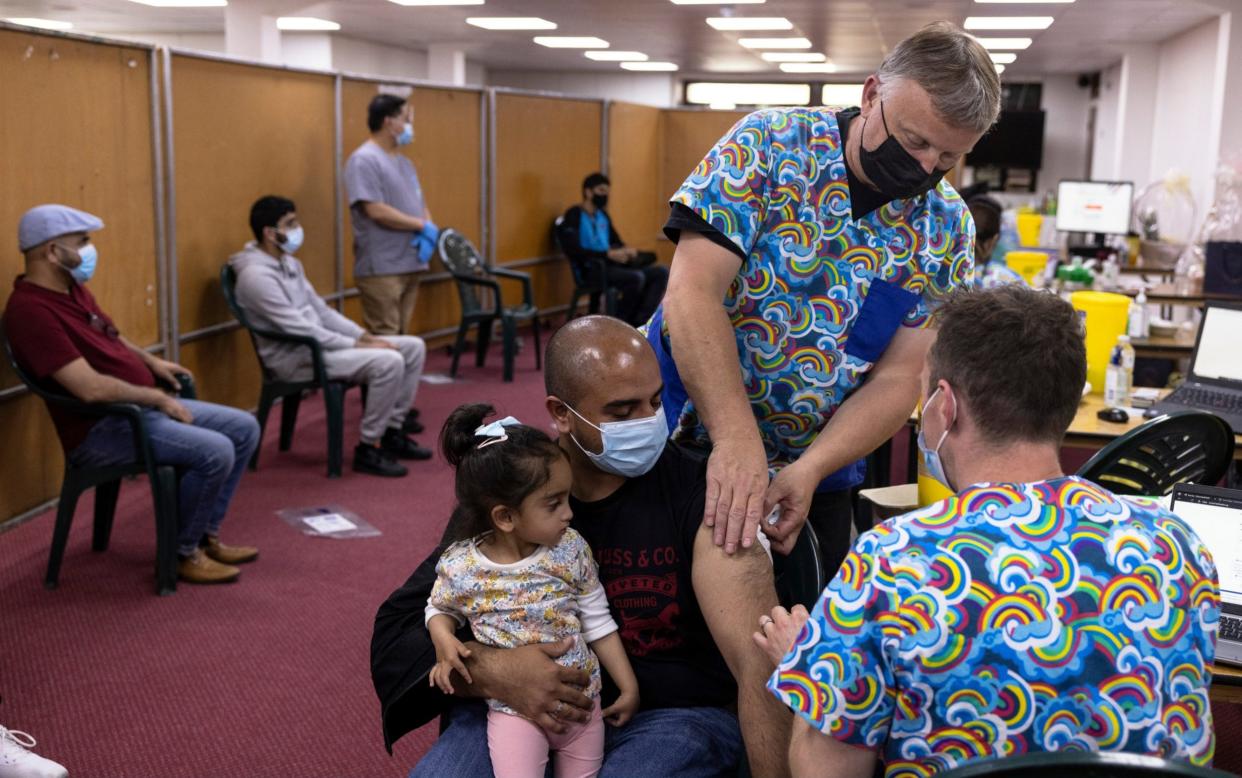Mixing Covid vaccines ‘more effective than having two of the same’

Mixing and matching vaccines can induce more immunity than having two of the same jab, a study by Oxford University has found.
Researchers discovered greater levels of Covid-fighting antibodies in people who had the AstraZeneca and Pfizer vaccines compared with those who had the Oxford jab alone.
Giving the AstraZeneca vaccine first, before the Pfizer dose, also appeared to give a better response than the other way round.
Although a double shot of the Pfizer jab produced more antibodies than a mixed-dose regimen, there was a stronger T-cell response in people who had different vaccines.
Prof Matthew Snape, associate professor in paediatrics and vaccinology at the University of Oxford and the chief investigator on the trial, said: "The results show that when given at a four-week interval both mixed schedules induce an immune response that is above the threshold set by the standard schedule of the Oxford/AstraZeneca vaccine."
Although there are no plans yet to give people different vaccines, the results show that it is safe to do so and could boost the effectiveness of the jabs. Government experts said it could be particularly useful if there were supply problems in the winter.
Prof Jonathan Van-Tam, the deputy chief medical officer, said: "Today's data are a vital step forward, showing a mixed schedule gives people protective immunity against Covid-19 after four weeks.
"Our non-mixed vaccination programme has already saved tens of thousands of lives across the UK, but we now know mixing doses could provide us with even greater flexibility for a booster programme while also supporting countries who have further to go with their vaccine rollouts and who may be experiencing supply difficulties."
Researchers are continuing the trial to find our whether the results remain the same with a 12-week gap between dosing. The research was published as a pre-print on the Lancet website.
A separate study found that a third shot of the Oxford/AstraZeneca vaccine could be an effective booster jab without the need for variant tweaks.
An Oxford University study found that giving people a third dose more than six months after their second led to a substantial rise in antibodies and increased the body's T-cell ability to fight Covid, including its variants.
Prof Sir Andrew Pollard, the head of the Oxford Vaccine Group, said it is not yet known whether people will need a booster shot in the autumn, but the new data shows the existing vaccine could be effective.
This week Oxford began the first trial of a variant vaccine – but the new findings suggest it may not be needed.

